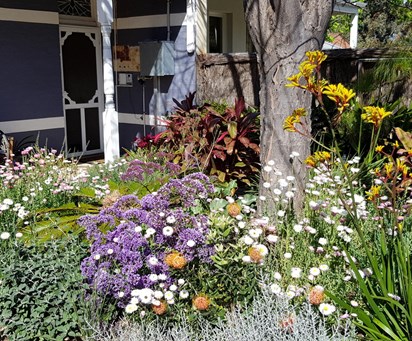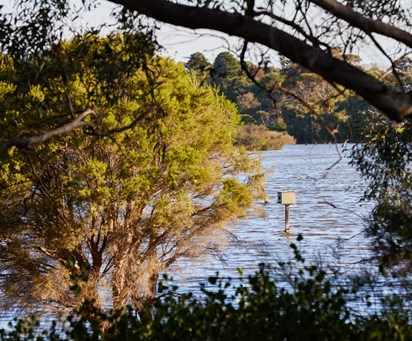
Christmas can be a time of more! More food and gifts has the potential for wasted food, unwanted presents and unnecessary packaging. With a few small changes, it is very easy to be more sustainable during this time. Here are our top five tips:
Top tips for small changes this season.
Christmas can be a time of more! More food and gifts has the potential for wasted food, unwanted presents and unnecessary packaging. With a few small changes, it is very easy to be more sustainable during this time. Here are our top five tips:
1. Use a living Christmas tree
If sourcing a living Christmas tree is not possible a lovely alternative to a plastic tree is a home-made arrangement of branches or a potted plant and the great thing is, you can use it year after year.
Plastic Christmas trees are generally made of non-recyclable, non-degradable plastics and metals that won't decompose, meaning they'll all eventually end up in landfill.
2. Consider sustainable gifts
Choosing sustainable gifts is about considering where the product was made, the materials it was made from, how it is packaged and any energy efficiency ratings.
Some sustainable gift suggestions include:
Make a donation to a worthy and personally meaningful cause.
Give an experience such as a massage, a cooking course, a yoga class, or dinner. These also have the added benefit of supporting local businesses.
Rather than buy gifts for everyone, organise a Kris Kringle or Secret Santa, which is a fun way to reduce the amount of 'stuff' we all end up with.
Consider the quality of the gifts, does it come with a guarantee? Is the brand committed to responsible practices? Is it made from biodegradable or recycled materials? Can you return or exchange it if it is not liked?
3. Reduce food waste
At Christmas it is all too easy to buy too much of everything and end up with a lot of waste. Make a list of only the things you really need to buy. Send your guests home with leftovers or compost to ensure nothing goes in the bin.
Food thrown into your garbage bin ends up in landfill. Food in landfill breaks down in a way that can create greenhouse gases, including methane, which affect air quality and public health. When we waste food, we also waste the resources used to grow our food (water, soils and energy) and all the energy used to process, package and transport food from markets to our homes.
4. Minimise plastic and packaging
When buying gifts and items for Christmas lunch, consider how much plastic packaging they come with. Avoid disposable dinnerware - plastic plates, cups, cutlery and drinking straws and, skip bottled water and recycle what you can afterwards.
Also consider alternative ways to wrap presents, find inspiration from things you already have at home and if you need to buy new, consider paper and bags that can be reused and recycled.
5. Shop locally
Shopping locally will not only support local businesses it will save you shopping miles, which are a measure of the energy and pollution associated with moving whatever it is you're buying from its source to your retailer or home.
Suggested ways to sustainably shop include growing your own food, shopping locally, buying seasonal produce, rethink online purchases and if possible walk, cycle or catch public transport when shopping.
And most importantly, remember that every little bit counts. What changes will you make for a more sustainable Christmas this year?


